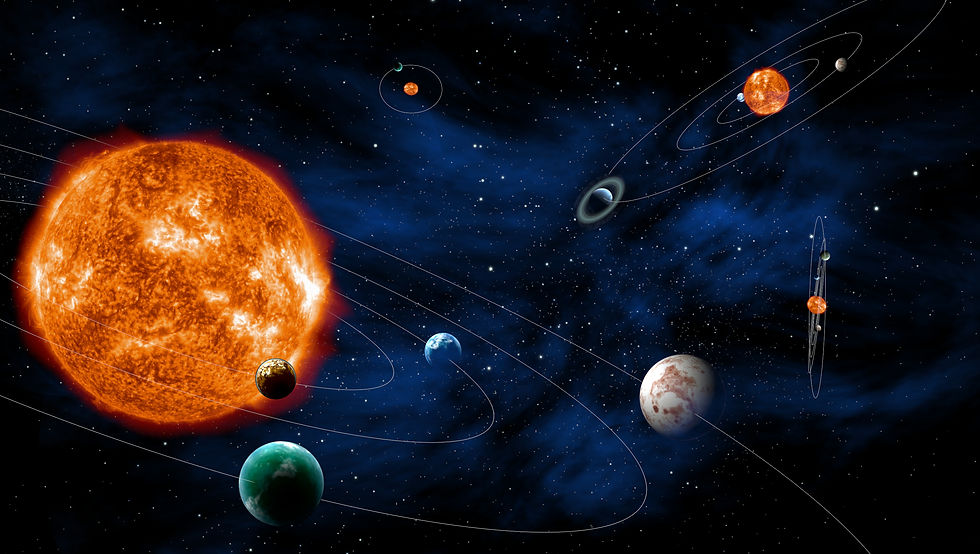Tech Sense: Space
- John Bell
- May 7, 2018
- 4 min read

Space
I know that most of my columns are about personal technology including computers, software, and security, but I thought I would go a little further out this month and look at what is going on in the space launch arena. I have been a fan of anything having to do with space ever since I watched the John Glenn flight as a young boy. Space is again a wonder as it transitions from government-developed technology to commercial technologies. This month, I want to take a quick tour of the companies involved and what they are doing that is new and different.
SpaceX
In less than 20 years, SpaceX has gone from being a dream to the leading commercial space provider based on scheduled launches. Its costs are significantly below any other competitor in its launch categories, and earlier this year, SpaceX launched the Falcon Heavy, currently the most powerful operational spacecraft in the world. It also has the proven ability to land its spaceships after launch and reuse them for multiple flights. With the newest build of the Falcon 9 known as "block 5," SpaceX expects to be able to refly each rocket it can recover at least 10 times. SpaceX plans to test a method to recover second stages later this year and is expected to be able to launch people into space by the end of this year or early in 2019. SpaceX developed the base Falcon 9 launch capability using private funding but has received government contracts to meet the needs for supplying the space station and supporting manned flights to ferry astronauts to the station. SpaceX is also working on a much larger rocket, the BFR for Big Falcon Rocket. This rocket is much larger than the current Falcon rocket and more powerful than the Saturn V used for the moon launch. The BFR may quickly replace the Falcon Heavy rocket as the most powerful.
United Launch Alliance
The United Launch Alliance (ULA) was formed by traditional government contractors Boeing and Lockheed Martin as a joint venture in 2005. They currently offer four launch vehicles, the Delta II, the Delta IV, the Delta IV Heavy, and the Atlas V. They are working on the Vulcan rocket to replace all of these vehicles. It looks like this new vehicle will be powered by engines developed by Blue Origin.
Blue Origins
Blue Origin is owned by Amazon founder and Washington Post owner Jeff Bezos. Blue Origin has developed the engine that will most likely be used by the ULA in its new Vulcan rocket. However, Blue Origin has rockets it developed as well. Like SpaceX, the rockets are designed to be reusable. The New Shepard (named after Alan Shepard the first American in space) is a suborbital rocket that may be used to carry tourists to the edge of space. It has been through several successful test flights. Blue Origin is also developing the New Glenn rocket. New Glenn is expected to be able to send men into space and orbit the earth. The first test launch is expected in 2020. New Glenn is being developed using private funds only. Maybe we will be able to order one on Amazon
Virgin Galactic and Virgin Orbit
Virgin Galactic was created by Richard Branson and Burt Rutan to create a reusable space launch capability based on the design used to win the Ansari X prize. Virgin Galactic is expecting to offer suborbital tourist flights to near space. The system launches a spaceship (Spaceship Two) from a specially designed airplane (the White Knight Two). The ship launches from the mother plane 9 miles above the earth and rockets to the edge of space (about 70 miles) and then glides back down, ready to relaunch. Virgin recently spun off Virgin Orbit to launch small satellites into orbit from adapted airplanes. Spaceship Two recently completed a test flight with a test pilot on board.
Bigelow Aerospace
Bigelow isn't about taking you to space; it is about providing you with someplace to go when you get to space. Bigelow was founded by a hotelier and has pioneered the concept of creating inflatable or expandable modules that can be assembled into space stations. A Bigelow module is currently a part of the International Space Station (ISS), and there are two modules, Genesis I and Genesis II, that have been in orbit for more than 10 years. Bigelow plans to launch the first space hotel in 2021 and has proposed a module to greatly expand the space in the ISS.
Rocket Lab
Rocket Lab is a newcomer having made its first commercial satellite launch this year. This company is not building big rockets but little ones for little rockets. It first famously launched a disco ball into space before Elon Musk put his car there. The disco ball was designed so it could easily be seen from earth. The Rocket Lab premise is that small satellites are now easy to build but costly to launch. Most small satellites need to catch a ride with a bigger payload on a big rocket. This means the satellite needs to wait for the bigger launch. Rocket Lab’s idea is to provide small, inexpensive rockets for these small payloads so it can control its own schedules. With two successful launches under its belt, things are looking good for this space company.
Even More
I have run out of space, but I have neglected to mention Sierra Nevada and its Dream Chaser and so many others. If there is interest, maybe I will take this up again or cover some of the new satellites and missions both ongoing and planned.



תגובות